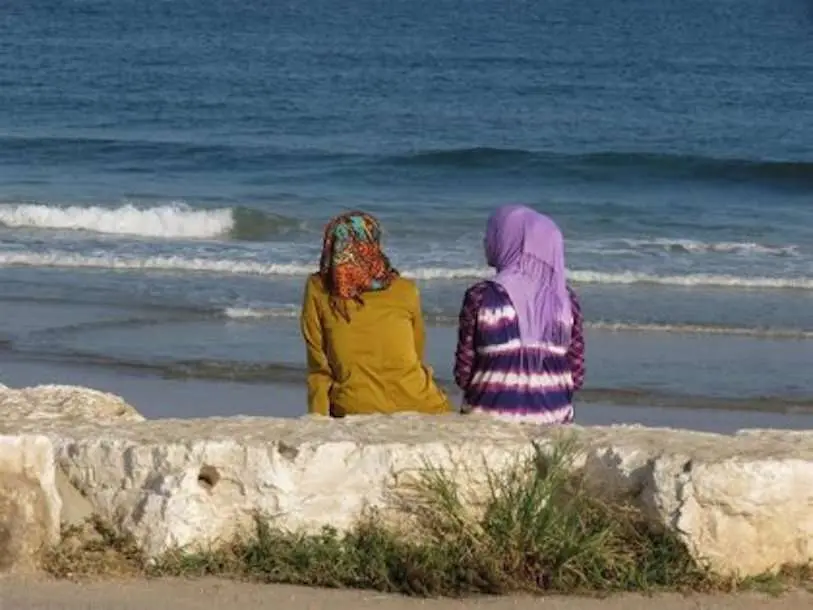Mediterranean women, drivers of change and recovery

Women in the Mediterranean region have faced the pandemic in particularly tough conditions. They have led on the health front with 79 per cent of nurses. Despite their multiple responsibilities, women in the region have the lowest economic and labour force participation rates in the world.
In the post-COVID-19 era, women can make a difference in the recovery process and can stake their claim for a new development model. Now is the time for them to take their rightful place in the economy, in leadership positions in the region, and to act as the engine of change and recovery.
The integration of women in the economy in the Mediterranean region remains an unfinished business, despite progress in some countries. Unfortunately, per capita income remains among the lowest, poverty continues to affect large parts of the region and the international environment is no longer as favourable as in the past.
Half of the world's working-age population are women, 50% of them in business sectors compared to 80% of men. Wealth loss due to the gender gap is estimated at 10 per cent of GDP in advanced economies and over 30 per cent in the Mediterranean region.
The figures are overwhelming: only 49.2% of the population in the southern and eastern Mediterranean participate in the labour market compared to 63.5% globally. Of these figures, only 30% are women, with female unemployment reaching 41% among young women. Unemployment among female graduates is as high as 45% and, although there is now greater access to education, they are still excluded. In fact, increasing women's participation would add 47% to GDP over the next decade.
This is a low participation rate in the southern Mediterranean economy, at only 16%, while the world average is 33%. This implies a triple loss in human capital, growth and social equality. Women's participation in the labour force increases the middle class and reduces social and gender inequalities.
Incorporating women is a necessity that conditions the success or failure of the economic and social development of the entire region. In the process of Mediterranean integration, gender balance and equal opportunities must be achieved. Long-term strategies with specific programmes must be in place, as support for women could add $12 trillion to global GDP by 2025.
Encouraging women to be entrepreneurs and increasing the number of women entrepreneurs ensures economic gains and accelerates equality. It is about diversity and inclusion, not women versus men. It is about a balance that contributes to better informed decision-making. Women have the potential to be a contributor to economic growth.
The stakes are high. Many difficulties could be avoided by facilitating the conditions to promote their role in the economy, by removing the real obstacles for women to move up the corporate ladder, by providing equal opportunities in pay and promotion, and by not pigeon-holing women into particular positions.
Inequalities affecting women in the business sector include cultural norms, insufficient support for women-led businesses, lack of policy frameworks to address the gender gap, and the challenge of balancing family responsibilities with work.
But women entrepreneurs are an increasingly consolidated and present reality in the Mediterranean, and their role is key to achieving regional integration goals. Women share a tradition of cooperation; they can use their strength to create new scenarios, share their experiences and establish business relationships.
Women's creativity and potential must be harnessed. They must be given the support, opportunity and freedom to make their contribution. Clinging to outdated traditions is comfortable, but it can kill the genius of innovation. Change is inevitable and can be enriching if everyone participates and is open to the ideas and views of others.
Women's participation in the economy is a priority and an imperative because of their positive impact on boosting economic growth. With their contribution we can reduce social inequalities because prosperity is interdependent on inclusion. It is also about the fact that no enterprise is sustainable if it does not incorporate and reflect its society.
It is impossible to move forward in the region without building together a society based on equal opportunities or without ensuring the participation of women in economic and entrepreneurial development. Women are important actors in business creation and have a competitive advantage: they are innovators who create new solutions to improve people's lives. Their impact on society can be decisive and key to development and recovery in this post-COVID-19 phase. Without them, it is impossible to move forward, as they are partners in evolutions and revolutions, as they are in society.
Anwar Zibaoui is General Coordinator of the Association of Mediterranean Chambers of Commerce and Industry, ASCAME.

